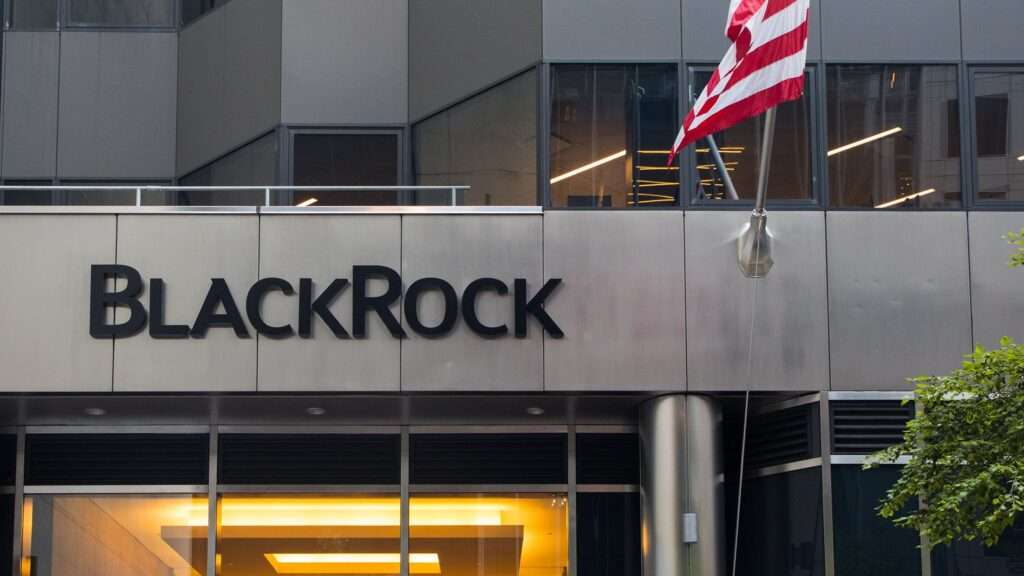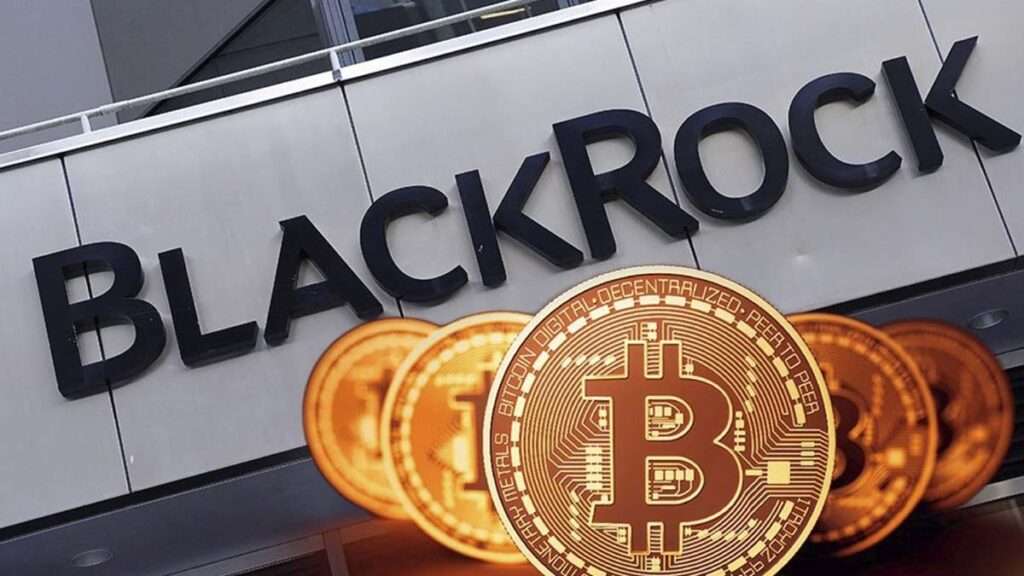Introduction
At the BlackRock and Grayscale scales in an evolving cryptocurrency investment landscape Central to bringing digital assets exposure to investors through exchange-traded funds (ETFs) were two companies: Not anymore: in the past few months, BlackRock ETFs simply crushed Grayscale across all AUM.
BlackRock is the world’s leading investment management firm with one of the most comprehensive product offerings in various asset classes, setting foot into the crypto ETF market strategically. Binary (used to provide access to iShares Bitcoin Trust—an exchange-traded product introduced in October 2021 that looked set for a significant rush of funds from investors who wanted a way into the world’s biggest cryptocurrency). It was a major strategic event for BlackRock, showing our ability to deliver innovative investment solutions across the spectrum of investor needs.
Miss Selkis or not, Grayscale has already blazed a trail in the crypto ETF space with its nine-year-old product for Bitcoin. Its early start in the market has made it a household name for investors looking to get into digital assets. Investors around the world have an interest in Bitcoin but are wary of its direct purchase or other complexities that surround it, therefore, they have used Grayscale’s Bitcoin Trust to gain indirect exposure to Bitcoins, making it a more convenient and regulated investment vehicle since 2013.
Grayscale has long been the king of the crypto ETF market, but BlackRock’s emergence makes it a huge new rival to contend with. On the back of its resources and market reach, along with some lingering reputation from days scribbling profit margins in Bic pen, WisdomTree has been able to drum up quite a lot of investor interest for its crypto ETFs quickly. In turn, one of the biggest beneficiaries has been BlackRock, which now manages more AUM in crypto ETFs than Grayscale altogether.
BlackRock’s AUM success over Grayscale highlights changing tides in the crypto ETF space. This is part of a larger trend in which institutional investors join the fray and look to gain access to cryptocurrency through regulated investment structures. BlackRock’s gain highlights the increasing market recognition of and faith in cryptocurrencies from traditional finance.
BlackRock's Rise to Dominance in the Crypto ETF Market
BlackRock, one of the maximum critical international investment management firms acknowledged for its diverse product offerings, made a dash within the cryptocurrency market in October 2021. The launch of its iShares Bitcoin Trust changed right into a high-quality occasion for BlackRock and the crypto enterprise as an entire.
BlackRock’s dominance inside the market has been reinforced via these moves and subsequent investments in other crypto-related ETFs.
A range of factors have helped BlackRock in its ascendant AUM increase at the crypto ETF scene. The first and maximum critical purpose is its popularity as a corporation that has constructed the brand. Retail and institutional investors alike have lots of faith in BlackRock, considered one of the largest asset managers inside the international. As a result, its debut within the crypto sphere changed into a massive “the whole lot is going to be okay” second and an additional step towards the acceptance of cryptocurrencies in conventional finance.
Additionally, BlackRock’s sturdy relationships with financial intermediaries who’ve demanded its crypto ETFs and its sizeable distribution platform. This has been vital for the enterprise as it has enabled it to draw a broader audience of investors, including people who had by no means previously taken into consideration investing in something as speculative and complex as cryptocurrencies. BlackRock’s deliberate asset manager crypto ETF is supported by using the employer’s installed infrastructure, which includes trading, threat management structures, and compliance equipment.
The employer’s emphasis on product development has been a primary factor in its rise to prominence. The first turned into the iShares Bitcoin Trust, however, BlackRock has seen that released a series of different cryptocurrency-associated trade-traded price range (ETFs) that track Ethereum and broader cryptocurrency indices. The enterprise has been capable of catering to a wide variety of investor choices and hazard appetites thanks to its sizable product line.
Additionally, investors have been increasingly concerned about environmental, social, and governance (ESG) issues, an area in which BlackRock has also committed a significant amount of money. Investors looking for ethical investments are aware of this focus because it has been a pioneer in incorporating ESG factors into portfolio construction.
Grayscale's Position and Challenges
By far the most well-known of these has been Grayscale Investments, a digital currency asset manager that became one of the first entities to introduce cryptocurrency ETFs. A trust that debuted in 2013 with some of the first and most famous crypto investment options (such as the Grayscale Bitcoin Trust) on Wednesday was terminated. Before trading GBTC through your brokerage account, those who sought exposure in Bitcoin would have had to purchase and store the cryptographic form of money.
Much of Grayscale’s early success had to do with being first but also with the growth of Bitcoin as an asset. Investors quickly flocked to the company’s various Bitcoin Trust offerings, eager for a simple way to access the burgeoning cryptocurrency market. Yet that market share has fallen in recent years as BlackRock and other rivals have grown their wallets around them.
Grayscale Faces BlackRock Competition – Several Contributing Factors One of the most important is the regulations for crypto ETFs in the US. While Grayscale has succeeded in offering its Bitcoin Trust as a closed-end fund, it has struggled to launch open-ended ETFs that track the coins themselves. The Securities and Exchange Commission (SEC) has previously delayed decisions on such ETF applications, expressing worries related to market manipulation as well as investor protection.
That put BlackRock in a position to be able to roll out open-ended crypto ETFs by using the relationships with regulators it has built up over time and its respected name as an established financial player. That has led to inflows of billions of dollars, as these ETFs allow investors more flexibility and better ability to trade cryptocurrencies.
Moreover, the Bitcoin Trust of Grayscale has suffered from the premium that its trade exceeds compared to NAV (net asset value) for under-net Bitcoins. This premium has varied through time, which keeps investors guessing. Over the years, this premium has disappeared and even become negative, or investors paid less for the Trust than what Bitcoin was valued at.
This BlackRock takeaway is not without its profound market-related insights — notably, in the context of Grayscale and REITs. The company generates most of its revenue from fees on its funds, thus, any drop in AUM would hurt profitability. Furthermore, the contraction of the GBTC premium has led investors who bought into that Trust at a discount to now give up some share price upside opportunity.
Grayscale has addressed these hurdles by pressing forward with its efforts to bring regulatory clarity about and further diversification of product offerings. Several Others Coming: The company recently filed for applications with the SEC to launch open-ended ETFs that track other cryptocurrencies, such as Ethereum and Bitcoin. Grayscale has also introduced new products like Grayscale Ethereum Trust as a part of diversifying its sources of revenue.
However, this is the case for the Uncertain Future of Grayscale. The fate of the company will lie in its ability to navigate through increasingly complex regulations, attract new types of investors, and differentiate itself from rivals. At this rate, Grayscale must be prepared for more hurdles to overcome if the approval of open-ended crypto ETFs by the SEC continues to get delayed.

Implications of BlackRock's Dominance in the Crypto ETF Market
The fact that BlackRock would lead the crypto ETF movement has significant implications for cryptocurrency investing. As a result, the company’s power may enable it to influence BTC and ETH prices as well as the cryptocurrency market as a whole.
How Will This Affect Bitcoin and Ethereum Prices
Bitcoin and Ethereum Prices Likely to Drop Lower The surge of institutional capital coming via BlackRock’s ETFs can deliver the costs of Bitcoin within Lyon and Consortium in afternoon New York jets, Bloomberg Published March 22 using as much$75 billion in assets under management (aum), supra industry sources and that’s as opposed to a complete $1.7 trillion throughout all cryptos, a were given remake?
As they are included in ETFs and given access to a large amount of capital from new investors, this ever-increasing, self-fulfilling demand boosts their prices even more. This could set up a virtuous cycle in which rising prices attract more investors who underestimate demand and drive up prices.
On the other hand, a dip in investor confidence or an overall market decline could spark crypto ETF liquidation, leading to sell pressure. That said, the emergence of major institutional investors in this space can also bring a degree of calm to the market, as such organizations generally do not trade assets for short-term speculation.
Institutional Investors Role
Key aspects of the cryptocurrency ecosystem are influenced by institutional investors (such as pension funds, hedge funds, and insurance companies). Once traditional investors realize CME and CBOT have already processed trillions of USD worth of value, their move into this market would be able to essentially legitimize the industry in case they start adoption.
Institutional investors may also provide an increased level of maturity and stability using their sophisticated risk management tools/analytical capabilities.
The fact that this is BlackRock making headway into the crypto ETF space points to the rising institutional acceptance of cryptocurrencies. Already one of the largest companies in space, Bakit can take on a role that many other institutional players will be unable to fill and thus help drive growth in adoption across crypto.
Broader Implications
In addition to the influence on prices, BlackRock’s cryptocurrency ETFs’ prowess carries wide-reaching considerations for this branch of cryptocurrencies. The company making its way into the segment could potentially hasten the local regulatory and infrastructure development required for expanding in this new financial domain. It can also help spur innovation and competition among other asset managers and, more broadly, fintech companies within the crypto sector.
To summarize, BlackRock’s crypto ETF monopoly has massive repercussions for the rest of the cryptocurrency sector. The company’s power over pricing and the behaviour of institutional investors will continue to dominate the future trajectory in this fast-changing market as cryptocurrencies race toward becoming fully regulated, formidable asset classes.

Investor Sentiment and Future Outlook
The other five BlackRock ETFs had a similarly positive reception from investors, as it makes a bigger push into cryptocurrency being accepted as an investment class. However, BlackRock is a well-respected and very strong brand, which means that it has accumulated some serious investor confidence. The debut has appeared as an endorsement of crypto assets from a top-tier financial institution and has bolstered the case for Bitcoin, luring in new investors who may have shied away earlier.
Although it also must deal with competition from BlackRock, Grayscale is seeing investor interest too. Its entrance into the crypto ETF space earlier than anyone else and being one of the first to provide exposure to Barclays ETN has paved the way for its status as a trustable name within the industry. Nonetheless, struggles to launch an open-ended ETF and shrinking premiums for the firm’s Bitcoin Trust have spooked some investors.
Indeed, moving forward, several trends will probably iterate the crypto ETF market in sum. Regulatory Developments The first area where regulatory developments are likely to play a key role. How the SEC Rules on Open-Ended Crypto ETF Applications Will Affect Their Growth and Accessibility Since the SEC approved more applications, this is expected to result in a wave of new crypto ETFs (including both direct custody and closed-end funds) that should broaden offerings for investors.
Second, the general macroeconomic backdrop matters in terms of how investor’s view cryptos with everything else. The demand for crypto ETFs is dictated by a variety of factors, such as interest rates and inflation, that are out of the control of investors. A positive macroeconomic background would support more investment in cryptocurrencies, while a negative one could see some investors moving to safe havens.
Third, Tech Advances Will Shape the Crypto ETF Market Going Forward The innovation of new blockchain technologies and related smart contracts could lead to fresh avenues for unique crypto ETF products. In the future, some behind-the-scenes structured products offering exposure to niches in digital assets could be popular—for example, ETFs that have a lot of DeFi protocol or any other emerging-sector crypto.
Fourth, the intensification of competition between asset managers. With new crypto ETFs coming to market, investors can look forward to a further array of products and even lower fees. While this will be great for investors, it could also mean trouble on the horizon for incumbents who may struggle to distinguish themselves from competitors and provide exceptional value.
Another important catalyst for the cryptocurrency ETF market will be if institutional investors start to invest in cryptocurrencies. The demand for ETFs as a more regulated and accessible investor class will likely grow as the cryptocurrency space becomes increasingly crowded by pension funds, hedge funds, and insurance companies.
If we extrapolate under these trends, it is fair to predict that the crypto ETF marketplace will keep on growing and becoming more mature. Step by step, things will continue to move forward in 2022 and beyond for digital asset ETFs despite the thought of doom and gloom, which could reign supreme. With the rising acceptance of cryptocurrencies, a nascent and maturing industry, as a gap in the range of cryptocurrency investment opportunities, crypto ETFs seem to have an important role to play in the future financial markets ecosystem.
Conclusion
Recent years have visible Pronto leverage the dominance of BlackRock in the crypto ETF marketplace. In this newsletter, we have tested the drivers behind BlackRock’s ascent and the hurdles confronting Grayscale…the penumbras will be plenty further attaining certainly.
BlackRock entering the crypto ETF market explained intertwined. The company quickly won over investors thanks to its innovative product line, large distribution, and strong brand recognition. In terms of assets under management (AUM), BlackRock’s crypto ETFs have so far surpassed Grayscale, establishing themselves as the new AUM flagship.
While Grayscale was the first major force in the crypto ETF market, it has struggled to maintain that demand. Its challenges are also due to the regulatory environment, competition from BlackRock, and the fact that the premium on its Bitcoin Trust could be eroded. Still, Grayscale is focused on increasing the market breadth of its products and working toward regulatory certainty.
The larger importance of BlackRock leading in the crypto ETF market Translation: The growing flow of institutional capital coming through ETFs should raise both the cost and adoption levels for Bitcoin as well as Ethereum. Moreover, the maturation of cryptocurrencies in traditional finance means that as they become less speculative and more stable, new investors may be attracted.
The possibility that cryptocurrency exchange-traded funds (ETFs) will become one of the most important parts of financial markets in a few years has been emphasized even more by BlackRock’s success. Investors looking to gain exposure to digital assets in a regulated and simple-to-access format will find that crypto ETFs are an appealing investment option because of this. It does appear to be inevitable that this industry will continue to expand, given the increasing competition for additional asset managers to enter its wellspring and the birth of innovative crypto ETF products.
Unquestionably, BlackRock turning into the most important holder of crypto ETF AUM represents a significant turning point for the crypto market. Its dominance has knock-on consequences due to accelerated institutional adoption (as greater major gamers enter the market), capability appreciation in rate, and full-size crypto enterprise development. It isn’t tough to imagine that the destiny of crypto ETFs will play a critical function in defining virtual assets over time as the law evolves and funding hobby increases.
